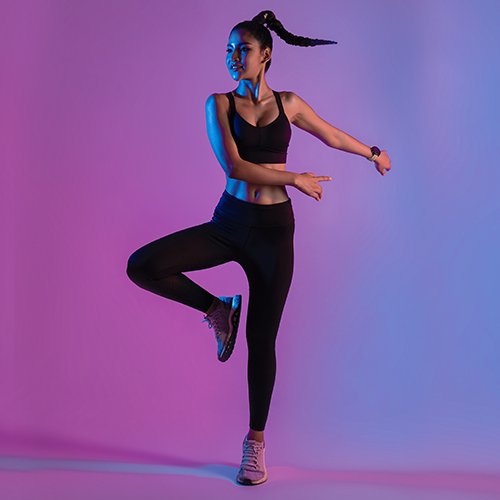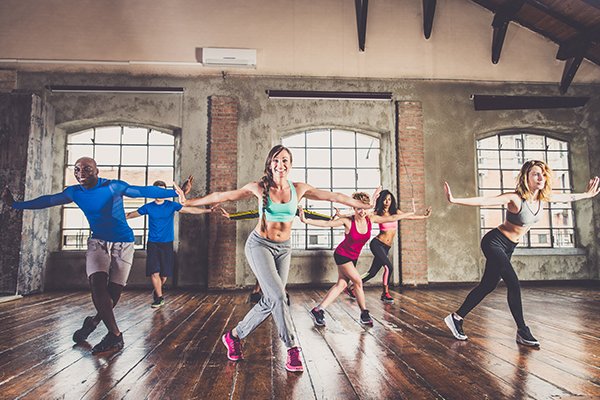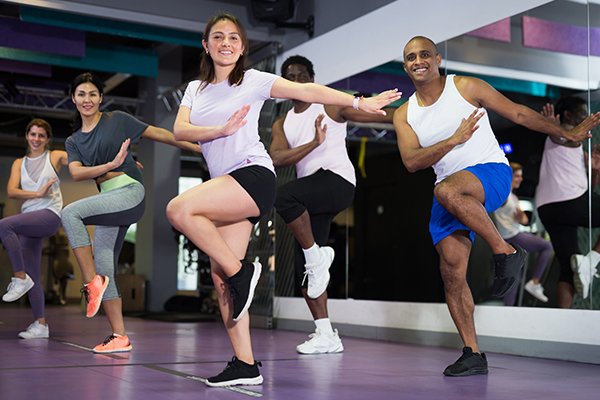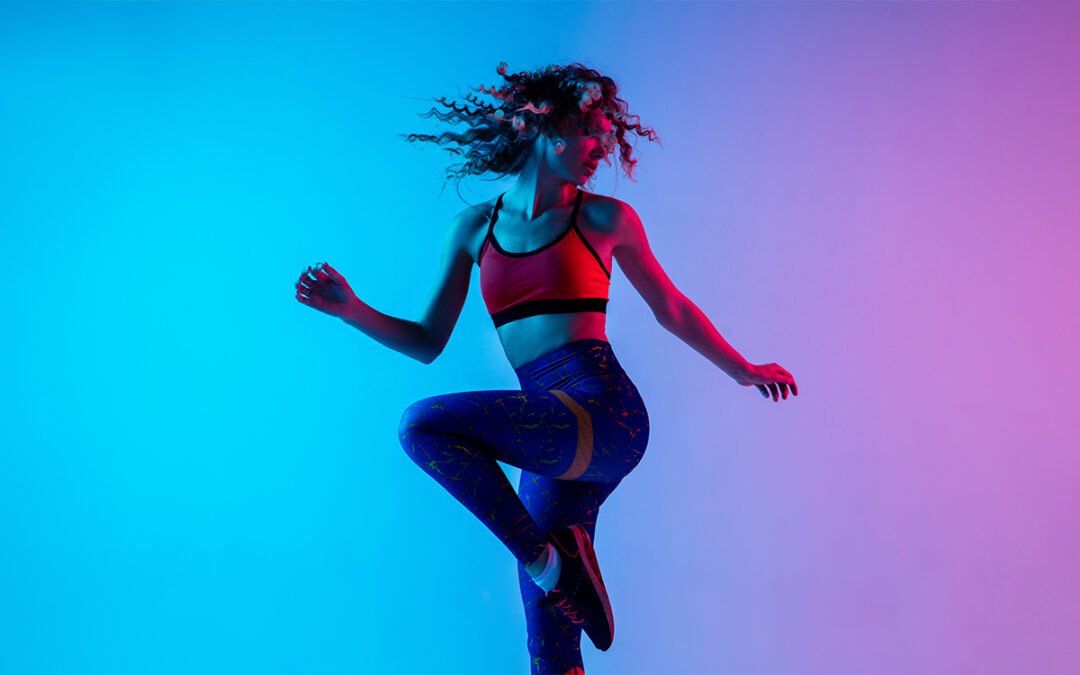Dancing does not need you to be flexible or fit – just enthusiastic and zealous! Here’s how to incorporate it into your fitness routine and make workouts feel like fun.
Dancing can mean different things for different people: For some, it is an expression of art, some consider it a representation of culture while for some, it is just a fun hobby. But dancing can also be one more thing: a great form of exercise! Dancing is pretty much the ultimate workout – it involves engaging all of your limbs and muscles and gets your heart pumping at the same time. Another plus? It is a lot more fun than exercising at the gym! A workout you will actually look forward to instead of dreading? Well, read on to know all about dance workouts!
If you’re someone who never misses a day of worshipping at the altar of upbeat music, dancing is probably second nature to you by now. You might even prefer it over any other form of movement – including exercise! But you’re in luck. We have a form of exercise for you that will ensure you’re in the best shape possible while having fun at the same time. Dance workouts started to become popular when Covid started and people had nothing else to do and were out of options since going to the gym was not possible. But the dance workout trend stayed around and is still as popular among people as it was then. The truth is that no matter where you decide to stomp it out – whether it is the hip-hop studio down the street or in your room with the blinds and doors closed – if you manage to hasten up your heart rate and start to sweat, you are working out. That said, the best way of using dance to exercise, is to follow structured dance workouts; these are most often created by professionals with fitness experts and are guaranteed to work. Dance cardio is repetitive, aerobic and its main objective is to get your heart rate up. Although, hitting the dance floor with your friends or dancing your heart out in your room can also function as a mini workout, even if it is not your intention – provided the dancing is a little intense!

The best way of using dance to exercise, is to follow structured dance workouts.
But the professionally designed dance workouts are designed to build muscular strength, mobility, and flexibility. They’re specifically designed by seasoned professionals who know what you require which is why you may reap more benefits from following those workouts instead of just dancing for fun. Dancing means you make use of most of your muscles: the hamstrings, glutes, calves, and the quads. How much benefit you reap from your dancing depends upon the style of dance you’re doing and for how long you’re doing it. The more intense the dancing, the more intense the benefit. If you’re opting for a slower dance style – like ballroom dancing – you will get the benefits equivalent to walking. While faster dance styles – like cardio or salsa – can actually be the equivalent of a more vigorous workout like swimming or jogging.

The more intense the dancing, the more intense the benefit.
TYPES OF DANCE WORKOUTS
1. Zumba Dancing: Zumba dancing is the most popular choice when it comes to dance workouts. Zumba classes are the easiest to find and are very effective. Another positive for accessibility is that DVDs for Zumba dancing are also available very easily and you can do this from the privacy of your home.
2. Bollywood Dancing: Bollywood dancing is pretty much the commercial name for modern Indian dance styles. It is a combination of classical Indian dance (which forms the base) and folk dances like Bhangra. It sometimes also has a Latino and Arabic influence. This is a fun and expressive form of dancing and is very intensive.
3. Hula Hoop Dancing: You probably wrote those huge rings off when you couldn’t get the hang of them in middle school, but there is a lot to be said for this form of dancing. The hula hoop can help tone your thighs, abdominals, gluteals and arms – and it is extremely fun!
4. Salsa: For optimum calorie burning, salsa dancing is your best friend. It is fun and exciting and you can reap as many benefits from it as you can from other dance forms. although, salsa dancing requires two people, so make sure you take your partner along.

Dancing is pretty much the ultimate workout.
Here is a four-week training program to get you started with dance workouts.
WEEK 1
Day 1: Dance workout – 20 minutes
Day 2: Rest/recovery activity (like yoga, flexibility exercises, or a short walk)
Day 3: Strength training – 30 to 45 minutes; Walk – 30 minutes
Day 4: Rest or walk – 20 to 30 minutes
Day 5: Dance workout, or rest – 20 minutes
Day 6: Strength train – 30 to 45 minutes; Walk – 30 minutes
Day 7: Rest or walk – 20 to 30 minutes
WEEK 2
Day 1: Dance workout – 20 to 30 minutes
Day 2: Rest or recovery activity
Day 3: Strength workout – 30 to 45 minutes; Walk – 30 minutes
Day 4: Rest or walk – 20 to 30 minutes
Day 5: Dance workout- 20 to 30 minutes; or rest
Day 6: Strength train, 30 to 45 minutes; Walk – 30 minutes
Day 7: Rest or walk – 20 to 30 minutes

Dancing means you make use of most of your muscles: the hamstrings, glutes, calves, and the quads.
WEEK 3
Day 1: Dance workout – 30 minutes
Day 2: Strength train – 30 to 45 minutes; Walk – 30 minutes
Day 3: Dance workout – 30 minutes
Day 4: Strength train – 30 to 45 minutes; Walk – 30 minutes
Day 5: Dance workout – 30 minutes; or rest or recovery activity
Day 6: Rest or walk – 20 to 30 minutes
Day 7: Rest or recovery activity
WEEK 4 Day 1: Dance workout – 30 to 40 minutes
Day 2: Strength train – 30 to 45 minutes; Walk – 20 to 30 minutes
Day 3: Dance workout – 30 to 40 minutes
Day 4: Strength train – 30 to 45 minutes; Walk – 20 to 30 minutes
Day 5: Dance workout – 30 to 40 minutes; or rest or recovery activity
Day 6: Rest or recovery activity
Day 7: Rest or recovery activity



















